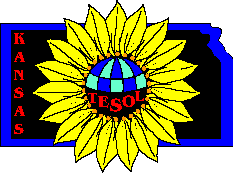
Fall 2005
NYU Strike Can't Stop NYSTESOL
New Profile: James Asher
New Profile: Mary Giles
In Memory of Nadia Shahin
TESOL Statement on Visas
![]()
/ Index /
/ Letters /
/ Profiles /
/ Search /
![]()
Subscribe
for free!

TESOL Issues Statement on Visas
Stresses Mutual Benefits of International Education Exchange
Two important position statements on U.S. immigration
and education policy were released by TESOL, Inc., in
October, 2005. These statements were presented and approved
by the TESOL Affiliate Council in March, 2005, and forwarded
to the TESOL Board of Directors for final approval before
being published and circulated. To download these and
other recent TESOL position statements, please go to
www.tesol.org.
One new TESOL position statement addresses immigration
policies which impact the presence of international scholars
at universities and colleges in the United States. The U.S.
Congress is currently discussing new immigration rules which
could further complicate the visa process for students and researchers from other countries who wish to learn and teach at institutions of higher learning in the U.S. The first wave of post-9-11 policies effectively gutted international student projects at many schools, also causing a number of university-level intensive English programs to shut down. The University of Minnesota and the University of California-Berkeley were two schools where life-time ESL professionals lost jobs and, in some cases, were forced to seek re-training for other professions.
The new TESOL "Position Statement on U.S. Visa Policy"
states that "the numerous changes in the U.S. visa process
implemented in the name of security since the events of
September 11, 2001, have created an often incoherent system
with many obstacles and hurdles for international students
and educators."
Among the benefits of international education exchange,
according to the TESOL statement, is that "such interaction
advances mutual understanding and collaboration in a
global community, necessary aspects of participating
in a global economy."
In order to increase access for international scholars
at American universities again, TESOL calls for the
U.S. government to:
2) create a timely and transparent visa process, and
3) refine controls and procedures to efficiently focus resources on those that require special screening.
The ESL MiniConference Online salutes our TESOL leaders
for taking a much-needed and long-awaited public stand
on these matters of crucial importance to higher learning
and global awareness in the United States of America. As
TESOL advocates for the interests of international exchange
and cross-cultural understanding, the organization also
needs the continued support of current and prospective
TESOL members, including those who have been impacted by
events and policies of the past few years and may have
allowed their membership accounts to lapse.
Language educators, ESL/EFL professionals, and all individuals sincerely devoted to cultural and language
exchange deserve to join forces and have their voices
heard in the important discussions now underway regarding
U.S. immigration and language education policies. To
join or re-join TESOL, please visit their Web pages at
www.tesol.org or call 1-888-547-3369.
If you want to be inspired by remembering some of common goals and experiences
at the heart of the important work done by ESL professionals
in higher education, you are also invited to listen to audio clips from Betty Azar, from her 2002 WATESOL plenary address, at: www.eslminiconf.net/azar.
Article by Robb Scott
2005 ESL MiniConference Online
Robb@ESLminiconf.net